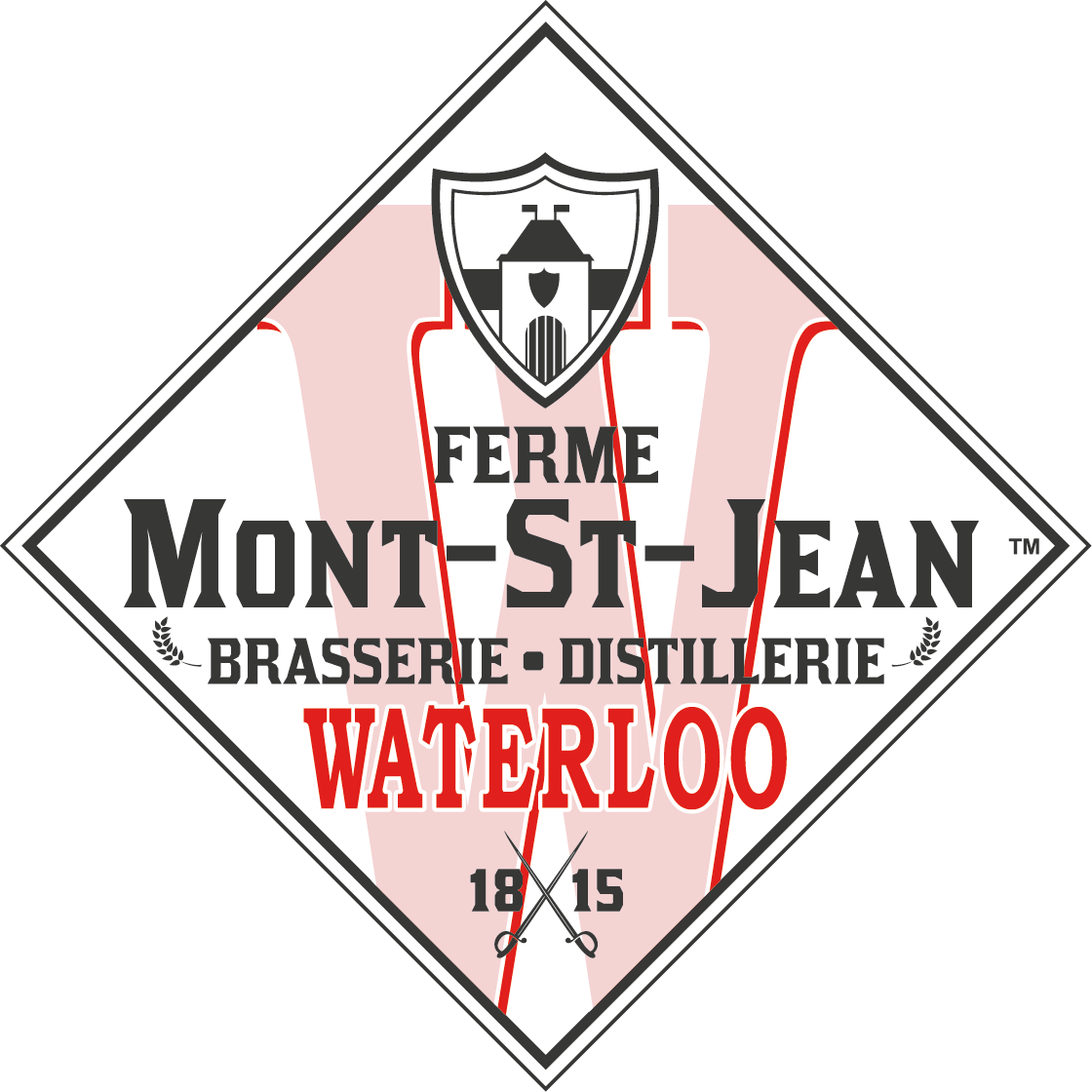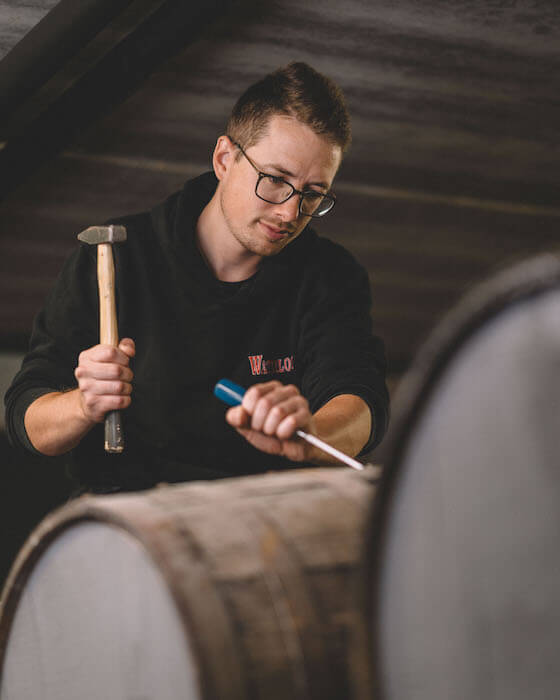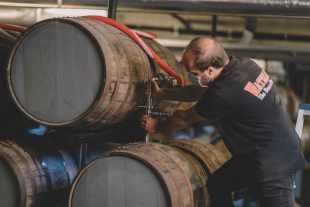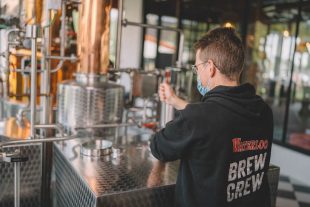Gin and Whisky
Welcome to the Land of the Brave! Mont-Saint-Jean Farm, in the heart of the Waterloo battlefield, and in particular Edward Martin, are very proud to present you their Gin & Whisky!
Distilled from cereals grown on the battlefield and in keeping with traditions, our Waterloo beers will take you on a journey!
History
Located at the foot of the famous Lion’s Mound overlooking the battlefield of Waterloo, Mont-Saint-Jean Farm has maintained traditions that go back more than a thousand years. Predating the former British field hospital, Waterloo Brewery has produced the finest traditional beers for 500 years and has now rekindled an old tradition by distilling high-quality Gin and Whisky. This is hardly surprising, given that a farm as impressive as Mont-Saint-Jean Farm most likely had its own distillery in previous centuries.
After all, a distillery was an effective means of transforming expired beer into distillates, producing concentrated grain alcohol from beer. In this case, Waterloo Beer is the main ingredient of Waterloo Gin and Whisky.
Although juniper-flavoured spirits called ‘jenever’ or ‘peket’ were already distilled here, the Battle of Waterloo opened our eyes to new products. In the 17th century, the English had developed gin by adding spices from their colonies to Flemish jenever, and in so doing they created gin.
So despite all its terrible consequences, with over 6,000 soldiers being treated in the field hospital, the Battle of Waterloo also brought something positive to Mont-Saint-Jean Farm. The British soldiers are said to have left barrels of whisky and gin at this farm, which inspired farmers from the region to distil new spirits.
The flavour nowadays of the Gin and Whisky distilled at the farm has been directly influenced by this Belgian-English heritage.
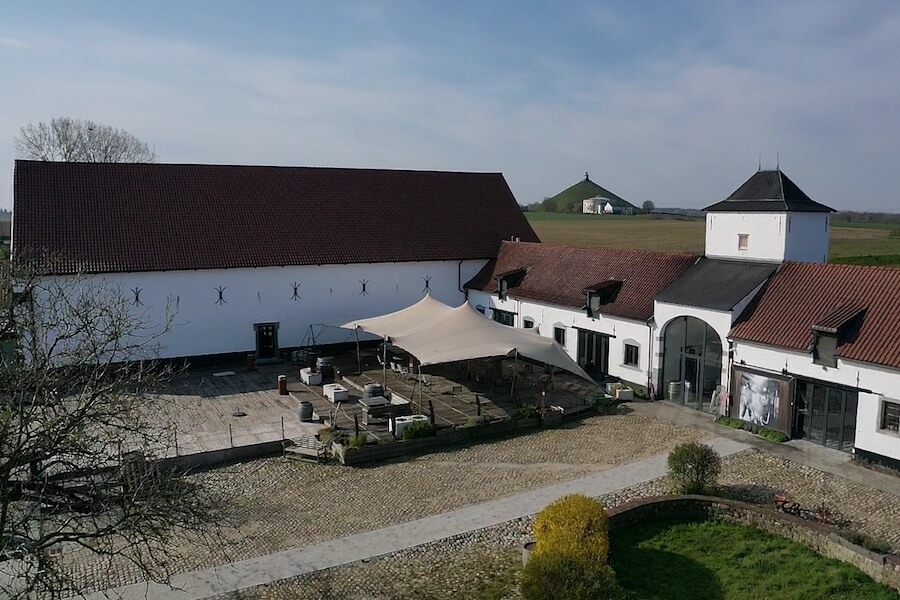
Production process
The 100% artisanal process is based on the methods used by farmers in the Middle Ages. First of all, you need an alcoholic base to distil any spirits, since distillation does not create alcohol but concentrates it.
The 100% artisanal process is based on the methods used by farmers in the Middle Ages. First of all, we start with an alcoholic base – our beers. Because when distilling spirits, distillation does not create alcohol but concentrates it, by separating the water molecules from those of the alcohol evaporating at a temperature of 78°C or more (instead of 100°C for water).
It all begins with the production of Waterloo Beer, which contains no hops, since this ingredient does not add any flavour to alcohols. In the olden days, this beer was either sought after or recycled because it was too old. Today, the beer is still brewed using locally grown cereals. The mashing process takes longer, while boiling and fermentation are shorter than for our traditional beers. The brew is then transferred just a few metres to our Waterloo distillery. It should be noted that the Whisky is brewed from 100% malted barley (the Waterloo Triple), for our single malt. However, the Gin and our single grain Whiskies are made from 30% wheat, as is the Waterloo Récolte.
The beer becomes the main ingredient of the distillate and is called ‘wash’ at this stage. This is brought to boiling point in a pot still and the alcohol evaporates at 78.3°C. During this process, the distiller carefully controls the temperatures.
The alcoholic vapours pass through a basket of herbs and spices, which have been carefully selected to make our Gins..
As is the case with every distillation, the alcohol obtained at the end is transparent. For the Gin, after it has been diluted with water, it is ready to be bottled. The Whisky, on the other hand, is transferred directly into our oak barrels, some of which come from Scotland and others from the North American continent. Only after three years of maturation in barrels can the liquor be legally designated as Whisky. During those three long years, the liquid will have absorbed from the barrel various notes that are sometimes vanilla, and sometimes caramelised or woody.
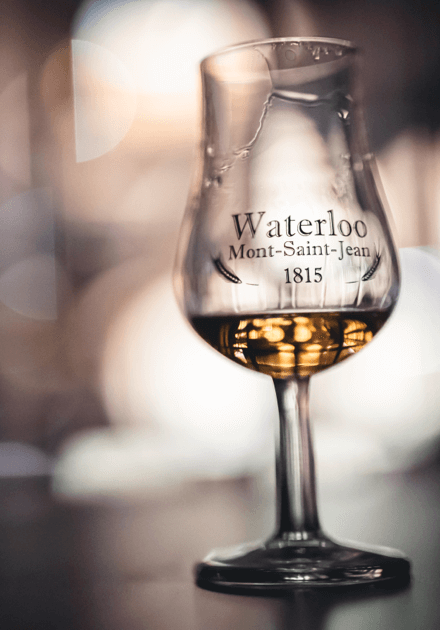
Microdistillery
The special feature of our brand-new German-made micro-distillery is that it can distil in two very different ways: as a pot still and as a column still. The pot still process is traditionally used for making whisky, while the column still process is used for producing gin. Although this is sacrilege according to the Scots, we have noticed that using a pot still is not necessary. In actual fact, by starting with raw materials of the highest quality and by controlling the fermentation process, we have succeeded in producing an exceptional distillate or ‘new make’ with primary notes of pears and cereals, and solely by means of a column still. This allows us to reach an alcohol content of over 70% immediately, whereas a pot still would require a second distillation to reach the desired alcohol content of 65%.
With a wash quantity not exceeding 500 litres, our micro-distillery is one of the smallest in Belgium. It only has a production capacity of up to 30,000 litres of spirits. Join us on our Waterloo Distillery Facebook page to follow this great adventure!
Ingredients
Waterloo Gin and Whisky are both distilled from beer. The only difference is that for the Whisky, the distillate is not altered at all and is produced purely from beer. For the Gin however, various spices and herbs are added during the distillation process to create its distinct flavour.
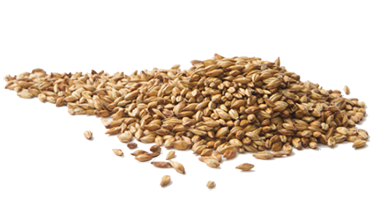

Whereas expired beer used to be distilled in the past, we only use beer that has been freshly brewed on site. All spirits are based on Waterloo beer. Our Gin and single grain Whiskies are distilled from Waterloo Récolte, a seasonal beer whose recipe has remained almost unchanged since the end of the Middle Ages. This beer is brewed with over 30% wheat grown in the fields surrounding the farm and barley malt. The beer contains no hops, which do not contribute anything to the distillation. Our single malt whisky is distilled from our Waterloo Triple, which has a lot of character and fruitiness. The water from the local well and the yeast of Waterloo Brewery reflect the region’s distinctive character.



